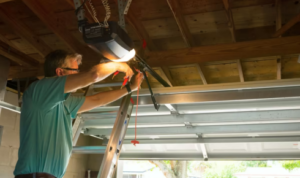
Marriage therapy
Every marriage goes through ups and downs, but when difficulties persist and create emotional strain, it can be overwhelming. Seeking help in a rocky marriage is an essential step towards healing, growth, and building a stronger connection.
Whether it’s due to communication issues, unresolved conflicts, or external pressures, seeking support from professionals and utilizing therapeutic strategies can provide guidance and offer valuable tools for couples to navigate challenges. Here are several ways to seek help and repair a troubled marriage, including options like CBT for depression and anxiety and marriage therapy.
1. Marriage Therapy
Marriage therapy, also known as couples counseling, is one of the most effective ways to seek help in a rocky marriage. A trained therapist provides a neutral space where both partners can openly express their feelings, address unresolved issues, and work towards mutual understanding. Marriage therapy focuses on improving communication, rebuilding trust, and resolving conflicts that may have become entrenched over time.
Therapists use various therapeutic techniques, such as cognitive-behavioral therapy (CBT), emotionally focused therapy (EFT), or the Gottman Method, to help couples understand each other’s perspectives, foster empathy, and build stronger emotional connections.
Whether it’s working through infidelity, financial stress, or parenting conflicts, marriage therapy provides couples with the tools and strategies to navigate challenges and improve their relationship dynamics.
2. CBT for Depression and Anxiety
When one or both partners are struggling with depression or anxiety, these mental health challenges can significantly affect a marriage. Cognitive-behavioral therapy (CBT) is a widely used therapeutic approach for treating depression and anxiety that can benefit individuals and couples facing these issues.
CBT for depression and anxiety helps individuals identify and change negative thought patterns and behaviors that contribute to emotional distress. For a marriage in trouble, if one partner is dealing with mental health struggles, CBT can be especially effective in helping them address underlying issues like negative thinking, self-doubt, or emotional overwhelm.
CBT techniques can help individuals manage symptoms of depression and anxiety, improve emotional regulation, and develop healthier coping mechanisms. This, in turn, can positively impact the relationship, as emotional well-being is crucial for maintaining a healthy and supportive partnership.
3. Open and Honest Communication
One of the main reasons marriages experience difficulties is a breakdown in communication. It’s essential for couples to create a safe environment where they can express their needs, fears, and frustrations without fear of judgment or criticism. Open communication encourages both partners to listen actively and empathize with each other’s experiences, helping to clear up misunderstandings and strengthen their emotional bond.
When facing a rocky marriage, consider setting aside time to talk regularly and openly about how each partner is feeling. Practice speaking with honesty and vulnerability while also listening with compassion and understanding. If communication seems strained, marriage therapy can also provide guidance on how to communicate effectively and constructively.
4. Seek Support from a Trusted Friend or Family Member
Sometimes, discussing marital issues with an impartial third party can provide a fresh perspective. Trusted friends or family members who have a deep understanding of your relationship dynamics can offer emotional support, advice, and encouragement. While this informal support can be valuable, it’s important to be mindful of boundaries and ensure that the individuals you turn to are unbiased and understanding.
However, it’s crucial not to rely too heavily on family or friends for advice, as they might not always have the objectivity necessary to offer the best guidance. Seeking professional therapy remains a more structured and effective solution for tackling deeper marital issues.
5. Marriage Workshops and Retreats
Marriage workshops and retreats offer couples an immersive experience focused on improving relationship skills, communication, and intimacy. These events often feature seminars, activities, and group discussions that help couples deepen their connection, learn new tools for resolving conflicts, and strengthen their partnership.
Marriage workshops are led by experienced facilitators who guide couples through a series of exercises designed to improve communication, rebuild trust, and enhance emotional intimacy. These settings can provide a much-needed reset for couples who are feeling stuck or disconnected, offering valuable insights and strategies for creating a stronger, more fulfilling relationship.






